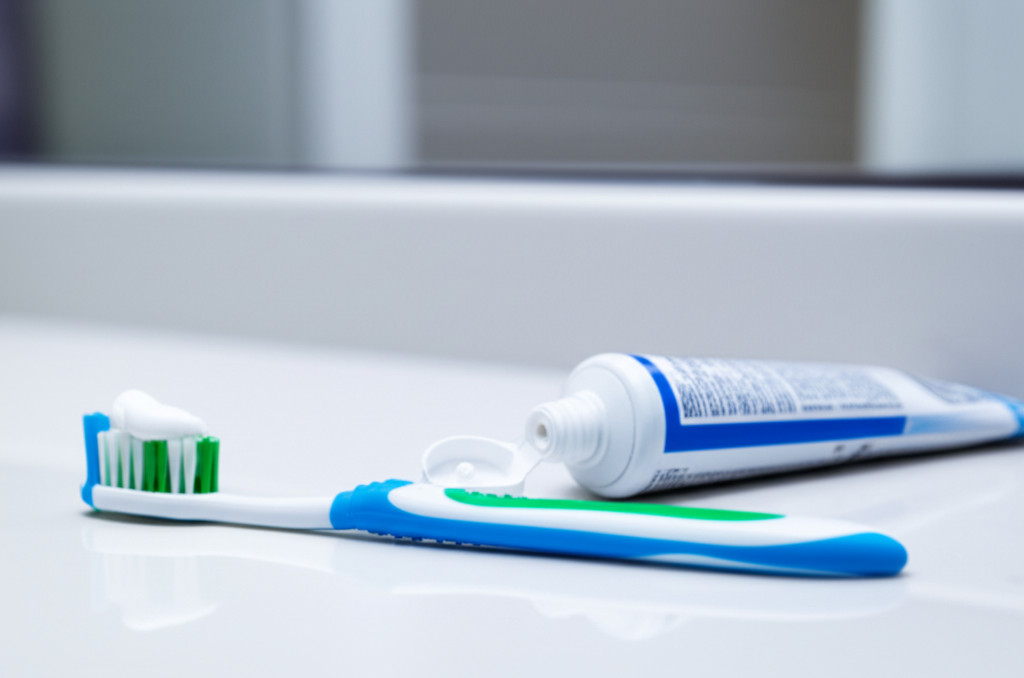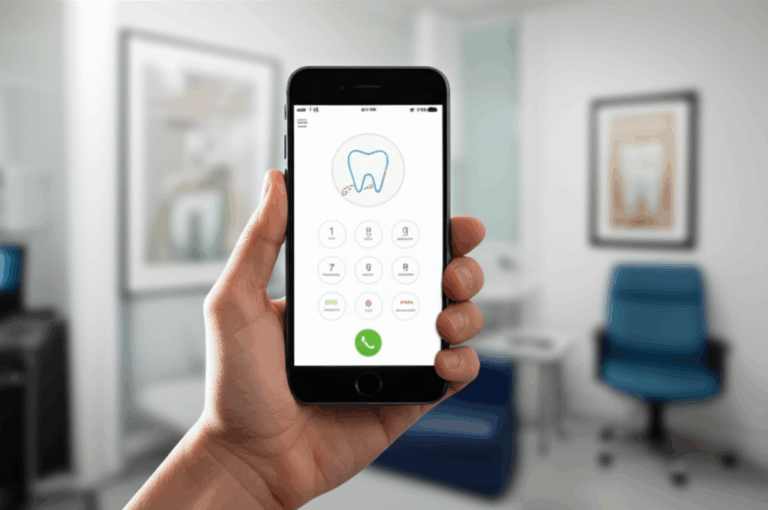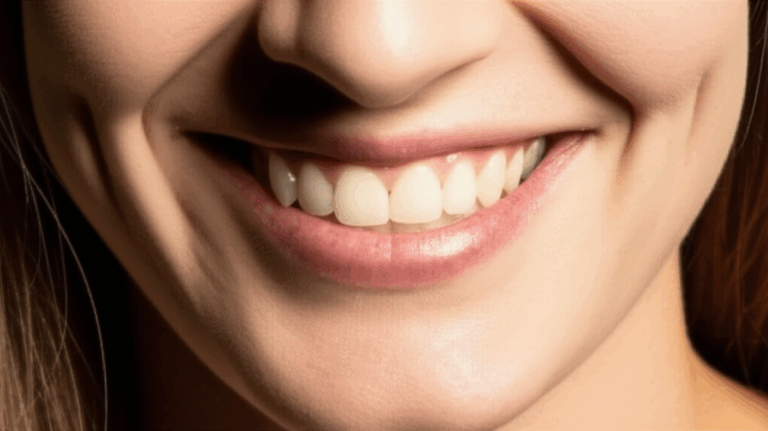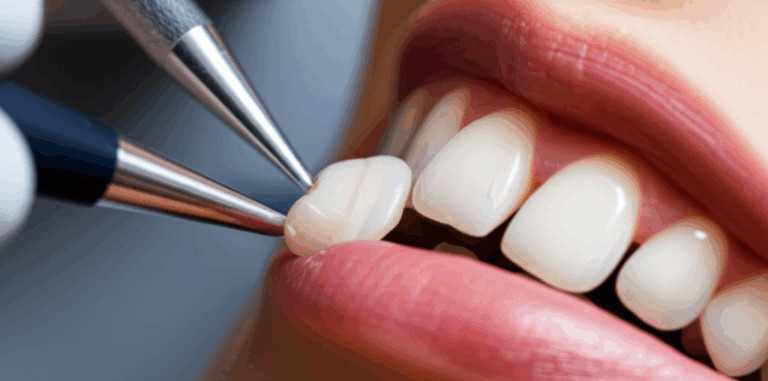
Are You Supposed to Brush Your Teeth Before the Dentist? The Definitive Guide
Short answer: yes. Brushing and flossing before you see your dentist helps them do their job better. It helps them see your teeth and gums clearly, makes your cleaning go faster, and keeps your breath from smelling bad. It’s also just a nice thing to do.
If you worry that brushing right before your visit will hide problems or make it look like you’re “cramming,” don’t stress. Dentists and hygienists can tell if you have plaque or gum problems even if you just brushed. You’re not supposed to trick them—you’re just starting your checkup the right way.
Table of Contents
Is This Normal? The Relatable Hook
You’re about to go to the dentist. You look at the clock, grab your toothbrush, and ask yourself, Should I brush right now or is that bad? Maybe you worry if it’s rude not to brush. Maybe you’re nervous about bad breath right before your dentist looks in your mouth. Lots of people wonder the same thing before a cleaning or checkup.
Here’s the simple truth. Brush your teeth. Floss if you can. You’ll feel better, and your dental team will appreciate it.
Simple Science: Why Brushing Helps
Your mouth is full of germs. This is normal. These germs make a sticky layer called plaque on your teeth and gums. Plaque grows after you eat, especially if you eat sugar or drink something acidic. If you let plaque stay, it hardens into tartar (also called calculus). Tartar sticks like glue, and you can’t brush it away at home. Your hygienist will take care of that during your cleaning.
Why Brushing Before Matters
- Clears away crumbs and loose plaque. This gives your dentist a better view of your teeth and gums.
- Lets your dentist spot small problems earlier, like cavities, gum swelling, cracks, or worn-down spots.
- Lets your hygienist focus on scraping off tartar, not just brushing away fresh plaque.
- Makes your breath fresher and the visit more comfortable for you and your dental team.
Can You Hide Problems by Brushing Right Before?
No. You can’t hide gum problems, tartar, or cavities by brushing in the car. Dentists and hygienists can see hardened tartar and spot signs of disease even if you just brushed. X-rays will also reveal hidden issues. Brushing helps, but it doesn’t erase real dental problems.
How Plaque Behaves Between Brushes
Plaque starts to grow again just a few hours after you brush. That’s why your daily routine is more important than just one brush before your visit. Still, brushing and flossing before you go gets rid of today’s food and build-up and helps everyone during your appointment.
How to Prep at Home vs. What Happens in the Chair
Think of cleaning your mouth before your visit like warming up before a game. You’re not doing the dentist’s job, you’re helping them help you.
What To Do At Home
- Brush for two minutes with a soft toothbrush and toothpaste with fluoride. Brush twice daily. On dentist day, brush along the gumline and chewing surfaces with gentle circles.
- Clean between teeth with floss, little brushes, or a water flosser.
- Gently brush or scrape your tongue. This cuts down on bad breath.
- Rinse with mouthwash if you like, but it is not needed.
- If your appointment is after lunch, brush after you eat or just before you go.
- Write down any questions or problems, like pain or bleeding gums.
What Not to Do
- Don’t brush hard or scrub too much. Gentle brushing is better.
- Don’t snap floss into your gums.
- Don’t try to hide problems. Tell your dentist if you have pain or bleeding.
- Don’t skip food or water unless your dentist told you to fast.
What Happens at the Dentist
- Your dentist will check your teeth, gums, tongue, and mouth. You might get X-rays.
- A hygienist will clean your teeth, scraping off tartar and polishing them. You may get a fluoride treatment if needed.
- Expect tips on brushing and flossing, and maybe new tools to try at home.
Common Misconceptions
“Brushing hides my problems”
You can’t brush away tartar or cover up gum problems minutes before a visit. Your dentist will see through it.
“The hygienist will clean them anyway, so why bother”
True, your hygienist will clean thoroughly, but brushing and flossing first let them get right to the important stuff, like removing tartar.
“What if I forget or don’t have time”
Go anyway. If you can, rinse with water. Your dentist would rather see you, brushed or not, than have you skip your appointment.
Special Situations and Tips
Morning vs. Afternoon Appointments
For early appointments, brush as part of your morning routine. For later appointments, brush after lunch or before you go.
Sensitive Teeth or Gums
Use a soft brush and gentle strokes. Tell your dentist if your gums bleed or your teeth hurt.
Special Procedures
For deep cleanings or if you’re getting numbing, brush before you go but follow all instructions your dentist gives you. For procedures with sedation or oral surgery, follow fasting rules. Ask if you’re not sure.
Eating and Drinking
For regular checkups, eat as normal and brush after if you can. For dental work with anesthesia, follow all fasting instructions.
What to Wear
Wear something comfy. Skip strong perfumes. Bring lip balm for long appointments.
Mouthwash
Mouthwash can help with bad breath, but doesn’t replace brushing or flossing.
Electric or Manual Toothbrush?
Use whichever you’re comfortable with. Soft bristles are best. Electric brushes may help some people brush better.
Helpful Tools
Try little brushes (“interdental” brushes), water flossers, or floss threaders for braces or bridges.
Diet on Appointment Day
Avoid lots of sugar or acidic drinks before your visit. If you do have these, rinse with water and wait a bit before brushing.
Dental Insurance and Info
Bring your insurance card and a list of medicines. Tell your dental team about any health changes.
Who Benefits Most from Brushing Before the Dentist
Everyone benefits, but especially:
- Kids and first-time patients
- People with braces or aligners
- People with gum disease
- People with crowns, bridges, or implants—your dentist can check them better if everything’s clean
If you want to know more about how dental restorations are made, you might check out a crown and bridge lab.
Quick Q&A
Should I brush right before or just in the morning? Brush during your normal routine if your appointment is early. If it’s later, brush after lunch or before you go.
Should I floss before dental cleaning? Yes! It helps the hygienist see your gumline.
Is it rude not to brush before the dentist? It’s not rude, but brushing first is just good manners and makes things more pleasant.
Will brushing hide cavities or gum disease? No, dentists see through fresh brushing with their tools and X-rays.
What if I forget to brush? Don’t stress, just go. You can rinse with water if you want.
Should I use mouthwash before the dentist? Only if you want to. It freshens breath but doesn’t replace brushing.
Can I eat before a dental appointment? Yes, unless your dentist says otherwise for special procedures.
Do I need to brush before X-rays? Brushing helps with the checkup and does not affect X-rays.
What toothbrush should I use? A soft brush is best, manual or electric.
Should I use disclosing tablets before my visit? They help at home, but you don’t need to use them just before an appointment.
Does brushing reduce bad breath for the appointment? Yes. Brush, floss, and clean your tongue for fresher breath.
Can I brush if my gums bleed? Yes, but gently. Tell your dentist if this keeps happening.
Simple Habits That Make a Difference
The reason for brushing before you see the dentist isn’t “to pass a test.” It’s to help your visit go smoother and keep your mouth healthy. The American Dental Association says:
- Brush twice each day for two minutes with fluoride toothpaste
- Clean between teeth daily
- Change your toothbrush every 3-4 months
- Limit sugary and acidic snacks
- See the dentist regularly
You may need extra help if you have lots of cavities, gum problems, or certain dental work (like crowns or implants). Your dentist can suggest tools like floss threaders or special toothpaste.
If You’re Nervous About Your Visit
It’s normal to be worried about the dentist. If you’re embarrassed about not having “perfect” teeth, know that your dental team wants to help you, not judge you. If you let them know you’re nervous, they can make your visit easier.
Tips to Calm Down Before Your Visit:
- Make a quick checklist: brush, floss, clean tongue, breathe
- Bring music or headphones
- Ask the dentist to explain what they’re doing next
- Ask for numbing gel if your mouth is sensitive
- Morning appointments might be easier if you worry all day
- Celebrate small wins, like less bleeding or brushing better
Pro Tips
- Wait a few minutes after drinking something acidic before you brush, to protect your enamel.
- Angle your brush towards your gums for better cleaning.
- Don’t scrub hard—gentle brushing works better.
- Cleaning your tongue helps your breath the most.
- Pick the right tool for the space: floss, little brushes, or a water flosser.
The Bottom Line Takeaway
Here’s what matters:
- Brush and floss before your dentist appointment. It helps everyone.
- You can’t hide cavities or gum problems by brushing right before. Dentists will find them anyway.
- Use a gentle touch and soft brush. Clean your tongue, too.
- Follow any special instructions if you’re getting sedation or surgery; otherwise, eat and drink normally.
- Be honest and ask questions—your dental team will help you.
Easy steps for today:
- Keep a toothbrush and floss handy for your next appointment
- Try a two-minute brush at home tonight
- Add tongue cleaning for a week to notice the difference
- Write down any gum bleeding or pain for your next checkup
- Book your next cleaning and stick to brushing and flossing every day
Remember: The American Dental Association says brushing twice a day and cleaning between your teeth every day is the simple way to a healthier smile. If you want help with your routine, just ask your dentist at your next checkup!
You’ve got this. Brush, floss, smile, and show up with confidence. Your dental team can handle the rest.








